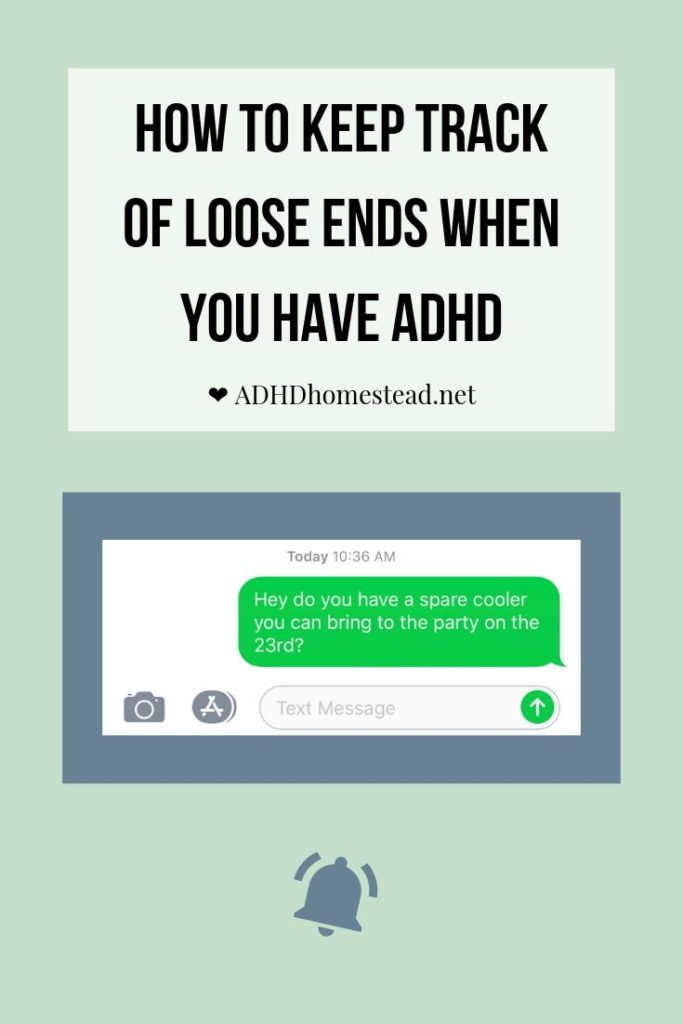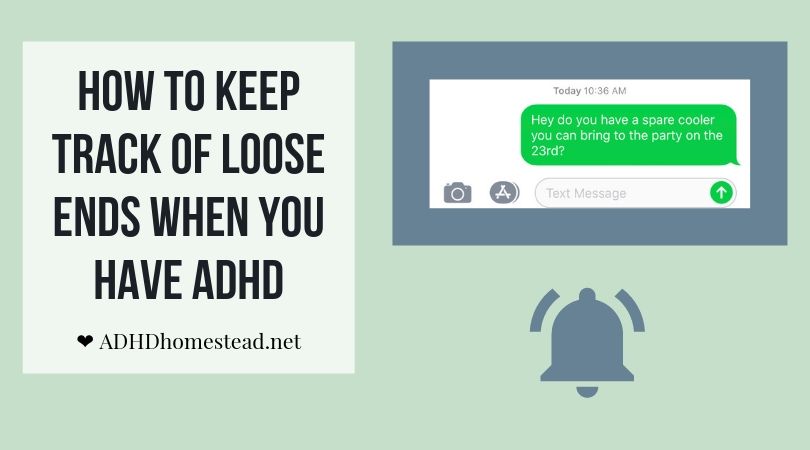Confession: I’ve had a post in the hopper about my weekly review for months. Maybe years. People with ADHD feel intimidated by organizational systems. A lot of us assume our ADHD will prevent us from ever succeeding with them. And yet I rely on my weekly review to stay sane.
I finally realized I can’t cover my entire weekly review process in a single blog post. However, I can tell you about one of the most critical pieces of my weekly review: open loops.
What’s a weekly review again?
In his book Getting Things Done, David Allen describes the weekly review as GTD’s “master key.” I use it to do a full review of everything on my plate. That includes my projects, to-do list, calendar, and finances. My weekly review gets my eyes on everything — no matter how briefly — once per week. This is especially valuable for ADHDers because anything out of sight so easily goes out of mind.
And nothing goes out of sight or out of mind quite so easily as what I call loose ends or open loops.

The open loop trap.
Most of us generate loose ends every day. We send emails or text messages asking others for something. We leave voicemails for people and expect them to call us back. When we complete a small part of a bigger project, we forget to identify the next step. Because we’re waiting for or expecting something — a reply, a phone call, an item on our to-do list — we move on to another task for now.
But maybe those people miss our text. Maybe they forget to call us back. And if we never look at our list of projects, we won’t realize we forgot to put the next action for this one on our to-do list. Those loose ends are out of sight, out of mind.
Until they become an emergency. Then we tend to get defensive. We say, “It’s not my fault. I sent an email asking for that information and no one responded.” I’ve gotten burned by it at work. Maybe you have, too. Even if we aren’t the ones who ignored the email, passing the buck reflects poorly on us.
A few tips for tracking open loops.
Conversely, keeping a handle on our loose ends is one of the easiest ways to make a good impression. I used to worry about nagging people, but most of the time they thank me for reminding them of a loose end. Eventually it would’ve become their emergency.
We need an effective container for loose ends or we’ll forget they exist. As I explain in more detail in Order from Chaos, these containers must be easy to use and outside your head. Here are a few ways I capture loose ends for later (weekly) review:
- When I leave a voicemail for someone, I write a note with the time, date, and subject of the message. I put this note into a “waiting” folder in the front of my desk drawer.
- If I’m not at my desk, I email myself these notes and file them in a “waiting” folder in my email.
- I use the carbon copy checks and keep the carbon copy in my “waiting” folder until I see it deducted from my bank account.
- I bcc: myself on any emails I send that require a reply and file them in a “waiting” folder.
- Emails people send to me promising follow-up or more information at a later date also go into this folder.
- If I have a project or task open for this communication in my task management app (Toodledo until recently, now Do The Thing), I’ll change the status from “next action” to “waiting” and include information about the time and date of my call/message in the notes section.
This leaves me with only three locations to check during my weekly review:
- Physical “waiting” folder in my file drawer
- Digital “waiting” folder in my email
- Task items with a “waiting” or “delegated” status in my app
If I’m doing my job, those three containers should catch every loose end.
View this post on Instagram
Tracking our loose ends makes us feel more in control.
Before I started treating my ADHD — and I do consider my weekly review part of my treatment strategy — I lived in a constant state of high anxiety. Missed loose ends triggered a reflexive defense: I’d condescend to the person who forgot to call or email me back, wondering why they hadn’t bothered to manage their tasks properly. I lived in fear of the day I would forget something truly catastrophic.
Getting a grip on these loose ends has dramatically reduced that anxiety and defensiveness. I feel more in control of my life. Others view me as reliable and organized, even when I don’t necessarily feel on top of my game. I don’t fear forgetting because I no longer keep any important information in my head.
Bottom line: people respect someone who follows up. It conveys a message that we care about the task and we take responsibility for keeping the process moving. That in turn encourages others to get back to us more promptly because they know we won’t forget.
Even more important than others’ perception of us is our perception of ourselves. Every time I forget something important or lose track of an open loop, my self-worth takes a hit. People with ADHD suffer these blows to our self-worth more often than we should. Every single one we can prevent matters. It increases our confidence and our trust in ourselves, and it encourages us to keep trying even if we do mess up every once in a while.
Hey there! Are you enjoying The ADHD Homestead?
Here's the thing: I don't like ads. I don't want to sell your attention to an advertising service run by the world's biggest data mining company. I also value my integrity and my readers' trust above all, which means I accept very few sponsorships/partnerships.
So I'm asking for your support directly. For the cost of one cup of coffee, you can help keep this site unbiased and ad-free.
Below you will find two buttons. The first lets you join our crew of Patreon pals and pledge monthly support for my work. Patrons also have access to my Audioblogs podcast. The second takes you to a simple donation page to pledge one-time or recurring support for The ADHD Homestead, no frills, no strings. Do whichever feels best for you!

